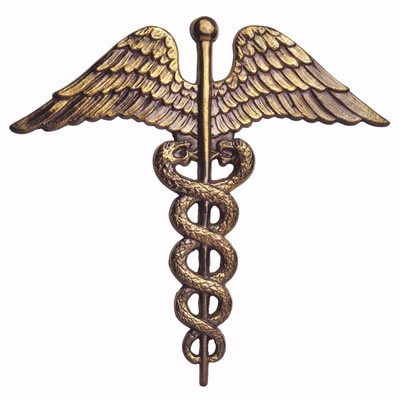|
This e-newsletter is sponsored by
|
|
Contact Us | |
American Society of
Bariatric Physicians
2821 S. Parker Road, Ste. 625
Aurora, CO 80014
office 303.770.2526 | asbp.org
Staff
Laurie Traetow, CAE
Executive Director
laurie@asbp.org
Colin Bennett
Director of Events &
Corporate Sponsorships
colin@asbp.org
Carly Crosby
Administrative Intern
carly@asbp.org
Heidi Gordon
Director of Marketing &
Communications
heidi@asbp.org
|
|
|
|
Obesity Medicine e-Weekly |
|
News
 | |
Dr. Puckett |
Do you think your state medical society could benefit from including obesity medicine CME at its next conference? If so, the Society invites you to make an introduction!
Earlier this year, the Society offered its Obesity Basic Medical Treatment course for the first time in conjunction with the annual scientific assembly of a state medical society, the Missouri Society of the American College of Osteopathic Family Physicians (MSACOFP). This collaborative effort came to fruition because of an ASBP member, Justin Puckett, D.O. (Kirksville, Mo.), who is a member of MSACOFP and its current president. While serving as the MSACOFP scientific assembly committee chair and identifying speakers, Dr. Puckett remembered the Obesity Basic Medical Treatment course and considered how it could be incorporated into the MSACOFP event. He then contacted the ASBP staff who set about working with MSACOFP on logistical and financial issues. The two organizations quickly discovered this to be a mutually beneficial idea, and the course was extremely well attended and received. Now, we are asking all members to help connect the Society to state-level medical societies that may benefit from including the Obesity Basic Medical Treatment course into their conferences. If you are interested in furthering the reach of obesity medicine education by introducing the Society to your state medical society, please send an e-mail to ASBP Executive Director Laurie Traetow, CAE, or call the office at 303.770.2526.

Sign Up to Receive
Bariatric Times Digital Edition: Complimentary for ASBP Members
Bariatric Times, a leading peer-reviewed, monthly journal providing articles on clinical developments and metabolic insights in total bariatric patient care, invites you to sign up to receive your complimentary subscription to its digital edition. Visit www.bariatrictimes.com to subscribe. Also, download the Bariatric Times mobile device application and enjoy the evidence-based, peer-reviewed information on bariatric and metabolic medicine wherever and whenever you need it! (The Bariatric Times application is compatible with iPhone, iPad, iPod Touch and Android mobile devices. To download, visit the Apple App Store or Android Marketplace and search for "Bariatric Times.") |
|
Ask the Obesity Expert
 New column highlights members' clinical and medical questions with responses from experienced obesity medicine physicians New column highlights members' clinical and medical questions with responses from experienced obesity medicine physicians
The Society is pleased to provide yet another member resource through a new feature column! Once per month, an experienced obesity medicine physician will respond to a question submitted by the membership. Then, the ASBP staff will post that question and response as a new discussion thread on the ASBP Group on LinkedIn, where we encourage you to weigh in on the discussion! Do you have an idea for a future topic? Please submit your question via e-mail to ASBP Director of Marketing & Communications Heidi Gordon. Need help joining the LinkedIn or the ASBP Group? Click here to download a PDF of instructions.
Question: When assessing initial body weight, is it necessary to measure body composition?
Answer: Yes. As obesity medicine specialists, we are committed to helping patients lose weight in a safe way and avoid regaining the lost weight. What exactly does this mean? We've all seen patients who may have achieved significant loss with various methods, only to regain their weight down the road. One of the variables that can predispose a patient to this weight regain (other than reverting back to previous weight-promoting habits) is the loss of too much lean body tissue. In general, for every pound of weight loss,one-quarter of the lost weight comes from lean tissue. While many variables can factor into an individual's metabolism, the amount of lean body tissue a person has is directly related to the individual's resting metabolic rate, which comprises about 60 to 75 percent of one's total daily energy expenditure. Therefore, a change in lean body tissue is something that can directly increase or decrease one's ability to burn fat. Whether the obesity medicine specialist uses bioelectrical impedance (an electrical signal that quantifies various types of tissues in the body), air displacement plethysmography (BodPod) or dual energy x-ray absorptiometry (DEXA), I believe it to be important to assess where a patient's weight loss is coming from (fat-free mass versus fat mass). In my experience, I can almost always predict when a patient is not getting an adequate intake of protein as the person tends to have a higher percentage of lean body tissue loss versus fat loss. This information then allows me to make more specific recommendations for the patient. When speaking with patients, I often describe the maintenance of lean body tissue as a part of their "insurance policy" against the regain of lost weight, along with the commitment to a healthy diet and lifestyle changes. I would encourage you to assess body composition in your patients' weight-loss journeys so that you can help them avoid any weight regain associated with loss of lean body mass.
 | |
Dr. Seger |
- Answered by Jennifer Seger, M.D. (San Antonio, Texas)
All advice and information in this column are given in good faith and based on sources believed to be reliable and accurate at the time of release. These statements reflect the views of the individual physician who is responding and do not necessarily reflect the views of the Society, nor indicate a commitment to a particular course of action. |
Obesity Updates: Click titles to view articles
Modest increases in dietary protein have become part of successful dietary strategies for weight loss and the prevention of weight re-gain. Some of the more commonly consumed higher-protein snacks in the United States include dairy products, such as milk, cheese and yogurt, which usually contain between 8 and 14 g of protein/serving. In 2008, Greek yogurt (20 to 24 g protein/serving) was introduced into the United States. This potentially ideal snack option was studied to assess whether the consumption of afternoon yogurt snacks, varying in protein content from 5 to 24 g protein, influence afternoon appetite and satiety responses and delay the onset of eating. The researchers found that the consumption of 160 kcal afternoon yogurt snacks, varying in protein content, led to reduced afternoon hunger, increased fullness and delayed the onset of eating. Additional benefits were shown with the high-protein snack containing 24 g of protein. These data suggest that a small, high-protein afternoon snack regimen might delay or prevent subsequent snacking and overeating later in the day.
Liraglutade (brand name, "Victoza") is a long-acting GLP-1 agonist and has been shown to promote short-term weight loss in adults. Lead investigators recently reported the safety/tolerability and long-term efficacy for sustaining weight loss over two years. The researchers found that the two-year prevalence of type 2 diabetes and metabolic syndrome decreased by 52 and 59 percent, respectively. The most frequent side effects were mild to moderate nausea and vomiting. The authors concluded that liraglutide is well tolerated, sustains weight loss over two years and improves cardiovascular risk factors.
Taubes, G. Nature, December 2012.
A recent article by Gary Taubes explores the validity of the energy balance equation and argues that it is time to test the hormonal theories about weight gain, rather than energy in/energy out. He contends that it is not excess calories that cause obesity, but the quantity and quality of carbohydrates consumed. |
|
Education
 Remember to register by Remember to register by
March 29 and save up to $366! (see p. 19)
The ASBP 2013 Spring Obesity Conference in San Diego on April 24-28 at the Manchester Grand Hyatt is only two months away! Full details about the speakers and topics are now available by downloading a PDF of the preliminary program. In addition, online registration is available, or you may download and complete a PDF registration form for return via fax or USPS mail. Hotel reservations can be made online and start at $199+taxes (single/double).
 Register for one of the four Obesity Basic Medical Treatment courses in March Register for one of the four Obesity Basic Medical Treatment courses in March
The Obesity Medicine Association, a division of the Society, recently announced a partial list of 2013 dates and locations for the popular Obesity Basic Medical Treatment Course. Attendees earn 7 hours of continuing medical education, plus ASBP offers a $30 discount on the second and subsequent registrations received from the same office. The registration fee is $199, if received by the Wednesday prior to the course date. The course provides basic clinical information and tools to effectively treat obese patients and their related conditions. Learn more by downloading a PDF brochure. Click here to download a registration form and read details about the course. Online registration is available for these dates and locations:
- March 2: Buffalo, N.Y.
- March 9: Oklahoma City
- March 16: Richmond, Va.
- March 23: Louisville, Ky. |
|
|
|
|